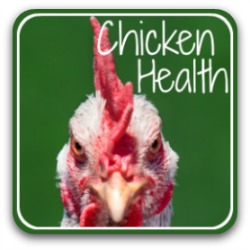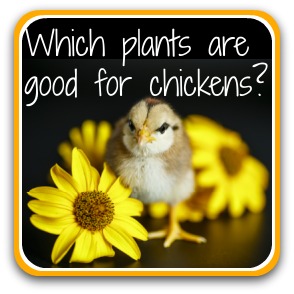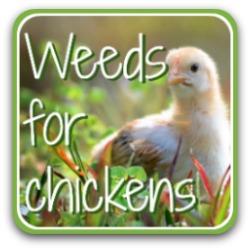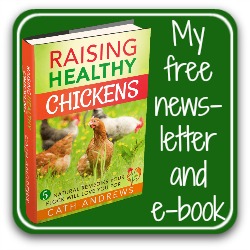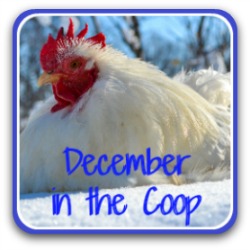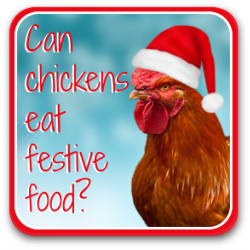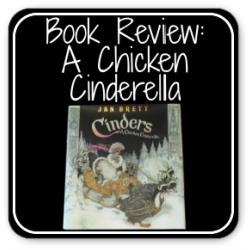Remembering Sophia Lor-hen: a tribute to a beloved hen.
Have you ever had a chicken who seemed fit and healthy one minute, and the next minute just died, for no apparent reason?
If you have, you'll be interested in this story.
It's about one of my hens, Sophia, and how her unexplained death taught me about a little-known phenomenon in the chicken world: Sudden Chicken Death Syndrome.
This article is not a guide to Sudden Chicken Death Syndrome.
It’s a tribute to one very special hen who taught me more than I expected – and left sooner than I ever wanted.
Sophia Lor-hen was a beautiful Golden Laced Wyandotte, hatched right here in my backyard and raised with care, sunshine, and the occasional fig. Even as a chick, she stood out: full of confidence, full of personality – and always first to the food.
 Even as a tiny chick Sophia Lor-hen stood out from the rest.
Even as a tiny chick Sophia Lor-hen stood out from the rest.Like most Golden Laced Wyandottes, this hen was a great beauty. So I called her Sophia Loren after the great Italian film-star.
But, as she was her own chicken-personality, I changed that to Lor-hen.
I also have a very handsome Golden Laced rooster called Spartacus, and the two of them were inseparable.
She grew into a striking, self-assured hen who ruled the run alongside Spartacus. She was first out in the morning, first in at night, and the top of the pecking order – without question.
That's Spartacus in the background, following Sophia into the coop.
 Sophia was always first out in the morning, first in at night.
Sophia was always first out in the morning, first in at night.One mild autumn day, Sophia came out of the coop, first as always, headed for her favourite spot to scratch for bugs.
By lunchtime, I found her lifeless in the run.
No signs of illness. No trauma. Just gone.
There was no distress, no attack, no reason I could see. She was only nine months old when she died. It's no age, even for a chicken.
She was laying well. She was fit, healthy, a good weight and showed no obvious signs of distress.
She looked as though she’d simply lain down in the sun and gone to sleep.
None of the flock, including Sophia, had shown the slightest signs of any illness. No coughing, no rasping, no foaming at the beak, no dull or runny eyes, no limping, no mites, no impacted crop, nothing around the vent area, no signs of runny or bloody poop.
Nothing.
She was, at least to my eye, fit and healthy – a well cared for hen.
 This picture was taken the day before she died - fit, healthy, pecking around with the rest of the flock, eating and drinking as normal.
This picture was taken the day before she died - fit, healthy, pecking around with the rest of the flock, eating and drinking as normal.Lessons from Sophia: grief, acceptance and grace.
I checked everything. I ran through every possibility.
And eventually, like so many chicken keepers do, I simply had to accept that sometimes, we don’t have answers.
Sometimes, our chickens just go.
What I learned from Sophia is this.
When our chickens die, we need not torture ourselves with what we could or should have done.
Yes, we can always learn lessons. But we then need to accept, and move on. To do otherwise is to do ourselves, and our other chickens, a disservice.
We should concentrate on the positives: the life they led, the joy they brought, the pleasure they found in finding even the smallest of bugs.
Sophia lived a good life. She brought me joy, laughter, and eggs – and when she died, she did so peacefully, in a place she loved, surrounded by her chicken friends.
 She enjoyed the company of friends.
She enjoyed the company of friends.I may have lost a chicken, but by hatching, raising and keeping her safe I gained so much.
I gained all there is that is good and healthful about keeping chickens in my back yard.
Are you looking for answers?
I’ve written more about sudden chicken death in this guide.
But this page?
This page is for Sophia, and for anyone who has ever lost a chicken they loved.
Sleep peacefully, Sophia Lor-hen.
You were a good chicken. Thank you.

Have you lost a much-loved chicken?
If so, you might like to take advantage of the part of my website I reserve specially for tributes to a hen, rooster (UK cockerel) or baby chick.
It's so easy to do, and it means you'll always have something written down that you can come back to and read when you need a quiet moment to remember.
To find out how, just click on the button or on this link.

